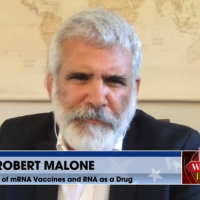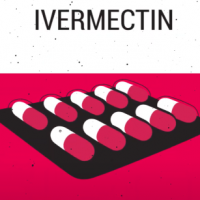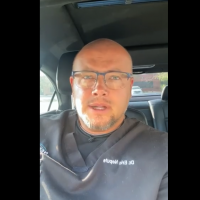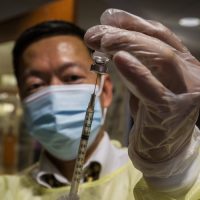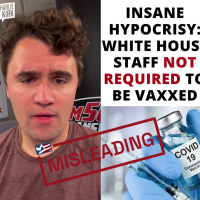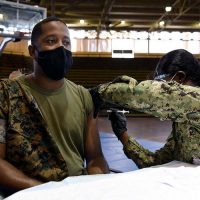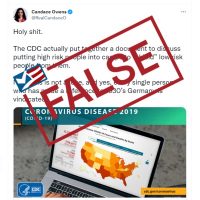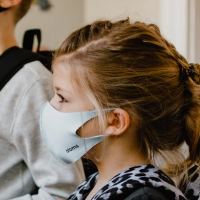The Pfizer/BioNTech COVID-19 vaccine was fully approved by the Food and Drug Administration, though an emergency use authorization also remains in place. Dr. Robert Malone misleadingly said Americans are being offered the shot only under the latter and that it carried different liability ramifications. The liability protections, afforded under a public health law, are the same for the two.
SciCheck
FactCheck.org’s SciCheck feature focuses exclusively on false and misleading scientific claims that are made by partisans to influence public policy. It was launched in January 2015 with a grant from the Stanton Foundation. The foundation was founded by the late Frank Stanton, president of CBS for 25 years, from 1946 to 1971.
Video: Idaho Doctor Makes Baseless Claims About Safety of COVID-19 Vaccines
Health Sensors Misconstrued as Government Tracking ‘Microchips’
A digital device company is developing gel sensors that would monitor the wearer’s health and could potentially help to detect future outbreaks of disease. But conspiracy theorists are falsely claiming that the sensors are actually COVID-19-detecting microchips that will be used to track people’s movements.
Chiropractor Again Peddles False, Misleading COVID-19 Claims
The delta variant of the coronavirus that causes COVID-19 is more transmissible than previous forms of the virus, and has helped spur an increase in cases, including in children. But a chiropractor in a Facebook video wrongly claims that “it is not showing more of a problem.” That’s one of several misleading and false claims he makes about COVID-19.
Texas Lt. Gov. Patrick’s False Claim About Unvaccinated Black People
Charlie Kirk Misleads on White House Vaccine Policy
Federal employees — including at the White House — must attest to being vaccinated against COVID-19, or else comply with routine testing and mitigation measures. But conservative commentator Charlie Kirk claims that the “White House staff is not required to be vaccinated,” baselessly questioning if undisclosed concerns about the vaccines are at play.
Hospitals Overwhelmed by Another Surge of COVID-19 Patients, Financial Strain
The seven-day average of COVID-19 hospitalizations in the U.S. has increased by 322% in two months, straining the ability of medical staff in some states to care for patients. Despite the rising numbers, an Instagram post questioned whether COVID-19 is “truly a pandemic that was ‘overwhelming hospitals,'” if hospitals are firing nurses who refuse to be vaccinated.
Marine General Supports Vaccinations for Military
The secretary of defense announced that COVID-19 vaccination will be mandatory for all service members by mid-September. But social media posts have shared an article from a dubious website that falsely claimed that the leader of the Marines “rebuked” the vaccine mandate. A Marine Corps spokesperson told us “there is no truth” to the claim.
CDC Document Discusses Strategy To Protect Displaced People From COVID-19
A Centers for Disease Control and Prevention document reviews the challenges of using a “shielding” approach to protect high-risk people living in places such as refugee camps from COVID-19. But conservative commentator Candace Owens misinterpreted it to mean the agency was proposing putting high-risk Americans into camps.
